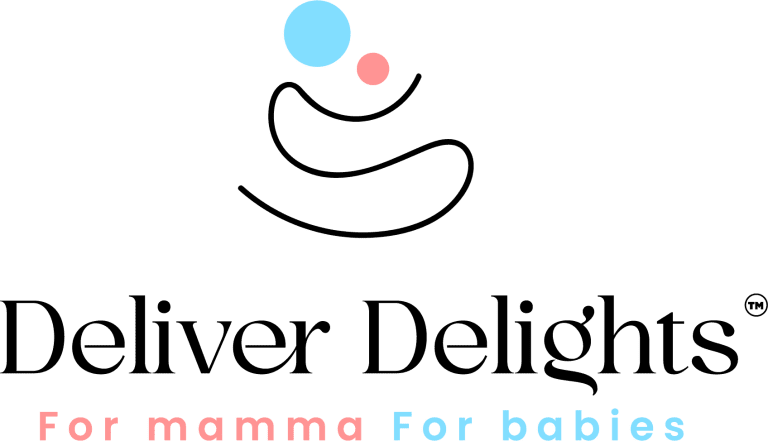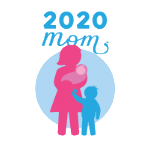How important is Breastfeeding, Really?
How important is Breastfeeding, Really?
Extremely!
There is almost nothing you can do for your child in his life that will affect him emotionally and physically
as profoundly as breastfeeding.
Heartfelt sharing from an experienced mother of two ( breastfeeding done for two years to both the
kids) & a certified lactation professional.
Breastfeeding is valuable for you, your baby, for your family. Breastmilk is a normal food for your baby
There is no formula that comes even close to your breastmilk. Your milk has every vitamin, mineral, and
another nutritional element that your baby needs. It has living cells that inhibit the growth of bacteria and viruses in their still maturing system. Your milk throws free of charge most of the hormones and anti-effectiveness, which would cost you the moon.
Even breastmilk can treat eye infections and all kinds of skin problems.
Make a note, that without his normal food, the baby is at higher risk of ear infections, intestinal upsets,
respiratory problems, allergies, and dental problems. One of the mothers of a 2-month-old asked me,
formula milk too gives lots of nutrition and protection, so why does only breastmilk gets the scholar
badge?
Simple, because the formula-fed baby has a different metabolism and a different development, gains
weight differently during his first year. Their kidneys and liver work harder to process the waste products
from the formula. He needs more medications to get the same effect. His immune system’s response to
vaccinations is less effective. I can go on, but I think you got the point.
What does the first milk contain?
Many times this question is being answered by many experienced lactations counselors, Iam taking the
opportunity to share my best knowledge with my readers.
Colostrum contains a high concentration of secretory immunoglobin, or sIgA, an anti-infective agent that
costs a baby’s intestines to protect from allergic sensitivities, and PSTI, which protects and repairs the
infant’s intestine and is seven times higher in colostrum.
Colostrum is a laxative, that gets the baby’s intestines up and running and cleans out all the tar-like stools called meconium, It has human growth factors that continue to develop those intestines, bones, and other organs. Insulin for digestion, long-chain fatty acids for a healthy heart, lactose for brain development- It’s all hugely stored!
Do you know?
Your baby can plan his own meal to suit his needs. If he is thirsty he will nurse for a shorter amount of
time and gets the lower fat milk. Still thirsty? He asks for a switch sooner and gets another thirst
quencher from the other side. Oh if he is extra hungry? He stays longer on the first side or pulls more
vigorously to take higher calorie fat milk.
Easy to remember – If your baby takes more milk than usual, he’ll have, more milk available the very next
time he nurses. If he drinks less than usual, your milk production scales back. Is he moving into
toddlerhood and nursing less often? There will be more immune factors in your milk to keep him
covered. You always have the reasons to be grateful, anyways!
This quote from Grantly Dick-Read from Childbirth Without Fear, says it all –
‘’ The newborn baby has only three demands. They are warmth in the arms of his mother, food from the breasts, and security in the knowledge of her presence, breastfeeding satisfies all three’’.
I am certain, reading my blog to this point, by now, you have declared to the world, & to yourself, that
you are gonna give your baby his normal food for sure.
But…what about the social fears and doubts which are making you overwhelmed in your journey of
pregnancy or when you are lactating even after the birth of your child? Don’t worry!
I will be glad to share, loads of evidence-based and a certified lactation expert’s guidance below,
supporting you & clarifying your confusion about breastfeeding and breastmilk.
Your first doubt:
Will my baby latch?
Your baby is born expecting to breastfeed. Babies are designed to deal with tough births, colds, coughs,
hunger, germs, separation, and still breastfeeding. It’s not all on your shoulders to make breastfeeding
work. Your baby is built for this, with all the reflexes he needs. Your job is to provide access and support.
And if your baby does have any difficulty, dont hesitate to call a lactation counselor.
Your second doubt:
Will breastfeeding hurt?
Nipple sensitivity in the early days is common. HAND EXPRESSION IS THE BEST TOOL to soothe your breastfeeding episodes. But if breastfeeding actually hurts, that’s your body’s
signal to change something. And it can be solved with simple changes under the guidance of a lactation
consultant. BUT.. nipple pains and nipple damages are not normal.
BEST READ: Nipple Blanching
Your third doubt:
Will I have enough milk?
Most of the time, it does. Some women have difficulties with milk production, but most of the reasons
are fixable. Sometimes mores are given wrong information, and sometimes it’s because the baby had a
problem in removing milk effectively.
But there are lots of ways to increase your milk supply; that too very effectively. One of the mothers took it so beautifully. She could produce only one teaspoon (5ml) of milk each day. She started giving milk as a daily dose of medicine for her baby.
Every single drop of breastmilk that your baby gets is wonderfully beneficial, containing all the
immunities of a full milk supply and many many elements that are completely absent from formula
Your fourth doubt:
How long I will be breastfeeding?
The short answer is, ‘as long as the baby wants. Based on the research, the World Health Organization
and many national pediatric associations around the world advise exclusive breastfeeding (no other
drinks or solids foods) for about six months, with solid foods gradually added and breastfeeding
continuing for at least two years.
Your fifth doubt:
Nursing Bras, Yay or Nay!
Bras are never a health necessity. It’s always a good idea to avoid underwires, at least at first. They can
cut across milk-making tissue and increase the risk of milk plugs or infections. Avoid any bra that’s tight
enough to leave marks on your skin.
Your sixth doubt:
Breast Pads, Not a necessity!
Breast Pads are helpful to soak up leaking milk, but some breasts never leak at all. (Leaking has nothing
to do with milk supply)
Ending the blog with what you wish you knew before the baby arrives:
Colostrum is enough: Cluster Feeding is a thing: Try to avoid birth interventions: Delay the firth bath: It can be isolating or lonely: Skin to Skin is so beneficial: Baby can lose 10% of birth weight: Tongue ties are real: Beware of engorgement: Latching isn’t always easy: DMER, mastitis, thrush…ouch:(
To summarize, once you start, milk is always being made. It is made more rapidly when the breasts are
less full. The fuller the breast, the more slowly milk is made. This is why your milk production slows
down if you wait to feed your baby until your breasts fill up. It’s why your breasts are never truly empty.
When it comes to breastfeeding, the decisions are always up to you.
Listen to your heart and trust that you know- or will know- your baby more than anyone else. Because you are your baby’s mother.
Love,
Deepti








2 thoughts on “How important is Breastfeeding, Really?”